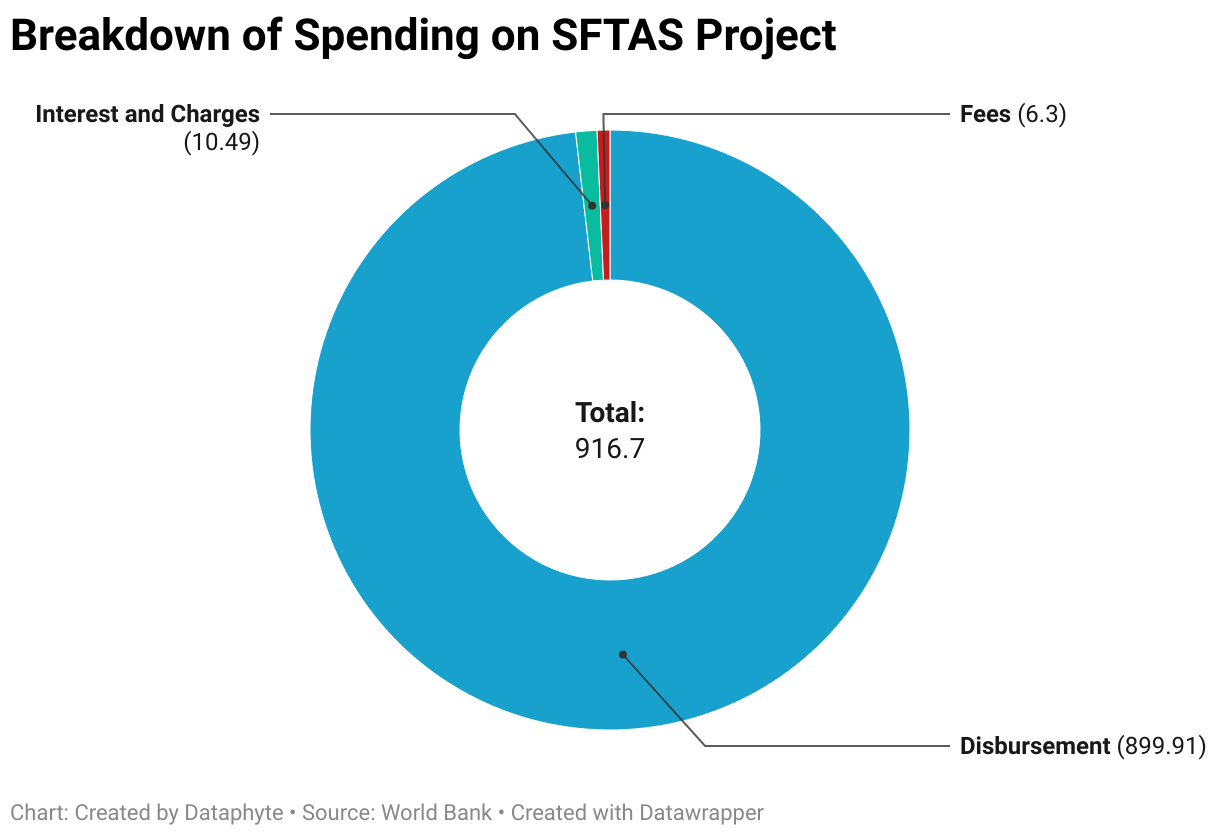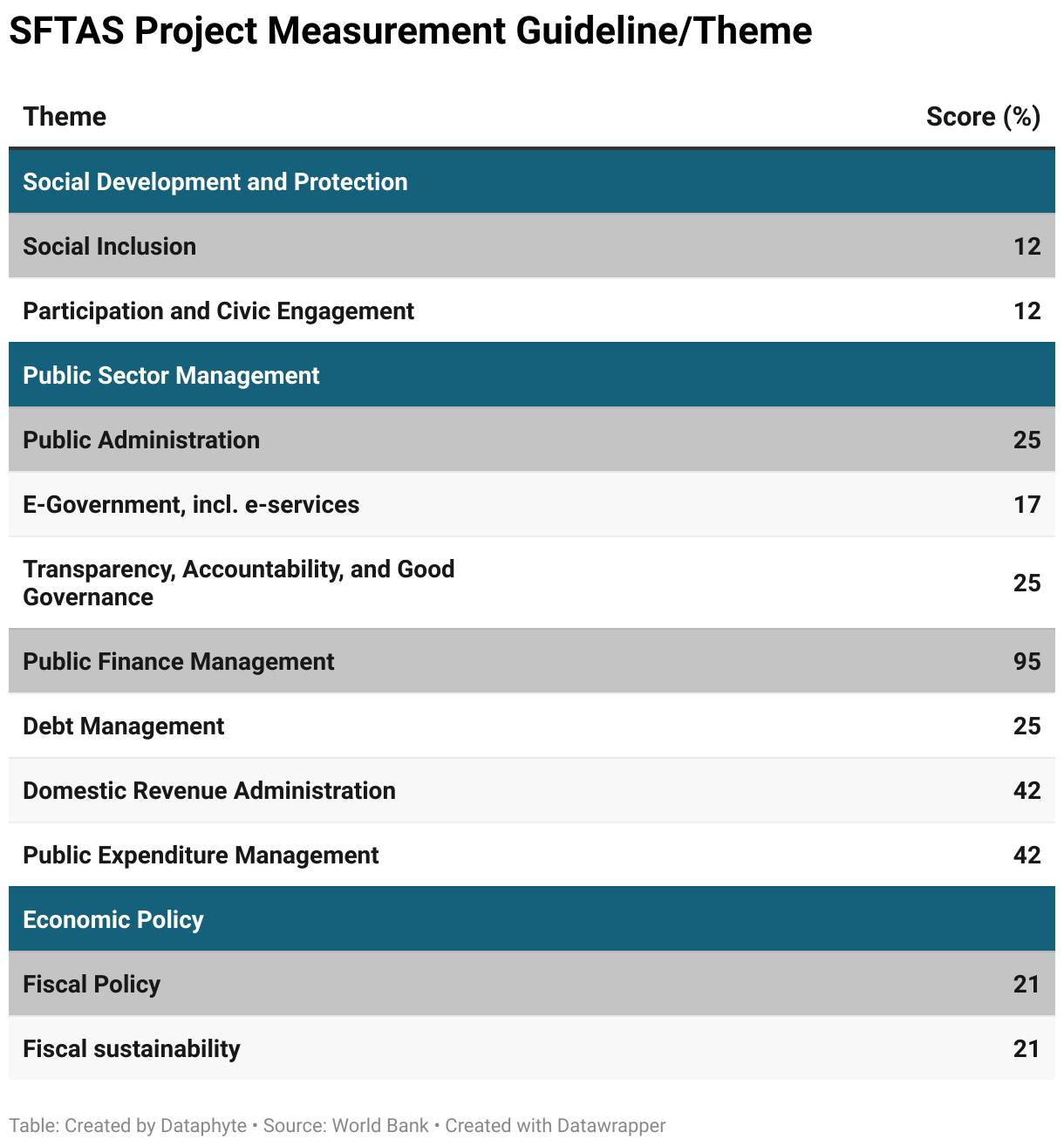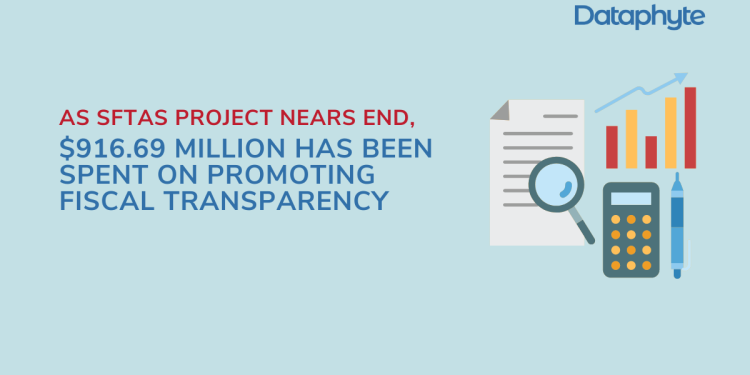A total of $916.69 million has been spent on the States Fiscal Transparency, Accountability, and Sustainability (SFTAS) project since it was kicked off in 2018. This money was shared among the state governments that met the stated requirements for the project.
The project, which is designed to strengthen transparency and accountability at the sub-national level, is expected to be concluded by the end of the 2022 fiscal year.
A total sum of $1.5 billion was committed to the project in two batches of $750 million (December 2018 and December 2020) by the World Bank. While this money is a grant to state governments through the Federal government, it is a loan to the federal government.
Of the $916.69 million spent, $899.91 million was disbursed to state governments who met the project criteria, this meets the criteria for disbursement. $10.49 million was the interest and other charges on the loan, and $6.3 million were fees.

Disbursement on the project is based on state governments meeting some laid down conditions. These conditions include that state governments are expected to ensure social inclusion in the budgeting process. This involves participation and civic engagement in state budget preparation. Provide periodical publication of the state’s financial statement, audit documents, budget documents, debt profile and servicing documents, and other fiscal documents.

As the end of the program draws closer, there are concerns about the continuation of the initiatives championed by the program such as the publishing of fiscal data at the subnational level with no reward in view.
Speaking on the project’s sustainability, Mr Segun Elemo of Paradigm Leadership Support Initiative (PLSI) said this has been on the minds of critical stakeholders. The World Bank, Governors Forum, and the Open Government Partnership (OGP), amongst others, have been involved in the process to ensure sustainability.
‘Everyone is working towards ensuring that the result attained is sustained across the state governments,’ the Executive Director of PLSI said. He further said that ‘one result is the continuous publication of citizens’ accountability reports, a summary report.’
This report is a comprehensive report containing budget documents, audit reports, revenue and expenditure statements, and also debt statements of state governments.
Mr Elemo stressed that the World Bank is doing some work to ensure sustainability as well. This involves training the Accountant Generals and Auditor Generals of the states where the first batch is concluded and preparing for the second batch.
He also pointed out how civil society organisations (CSO) activities can ensure sustainability. He highlighted what his organisation did using the information from published data to generate a Sub-national Audit Efficacy (SAE) index. The index shows how the states performed based on their level of transparency.
This index has spurred state governments to do better as, according to him, he has received calls from Bauchi and Lagos state governments pledging to do better in next year’s report.




